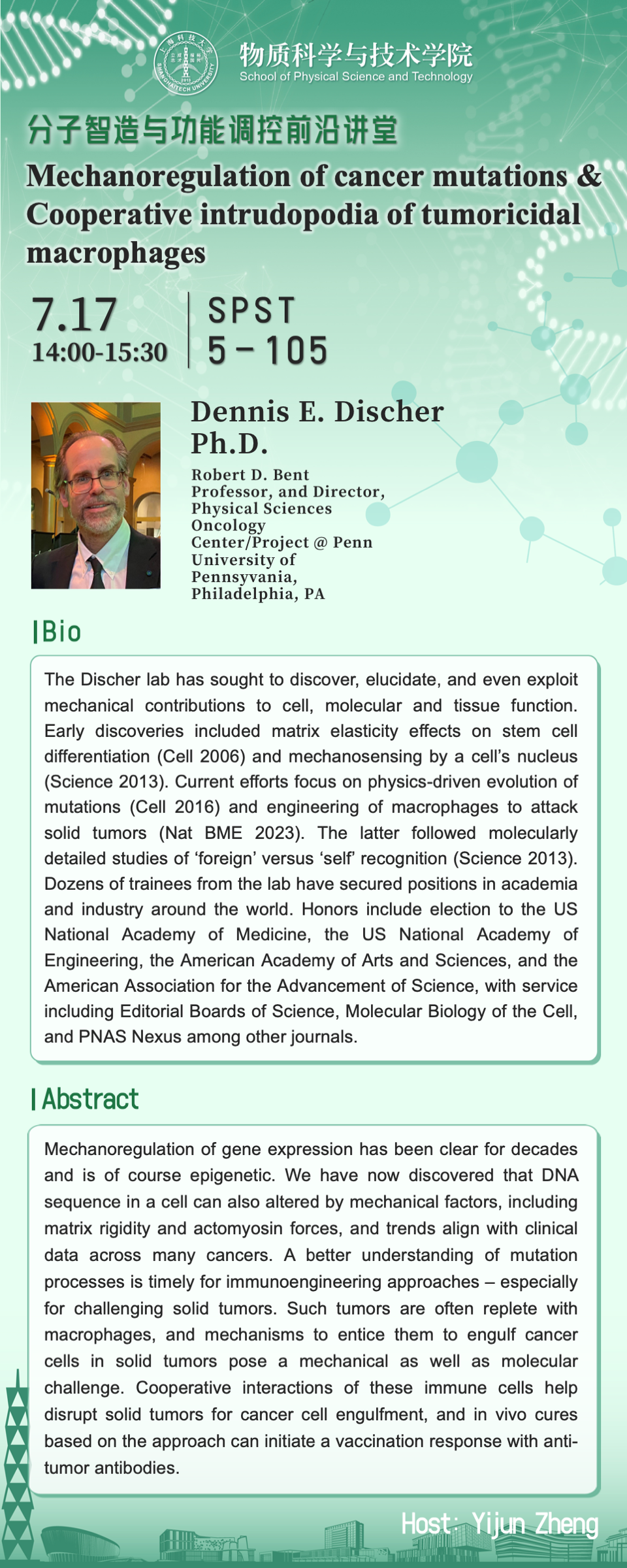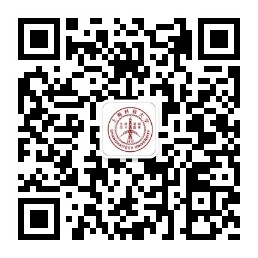
报告人简介:
The Discher lab has sought to discover, elucidate, and even exploit mechanical contributions to cell, molecular and tissue function. Early discoveries included matrix elasticity effects on stem cell differentiation (Cell 2006) and mechanosensing by a cell’s nucleus (Science 2013). Current efforts focus on physics-driven evolution of mutations (Cell 2016) and engineering of macrophages to attack solid tumors (Nat BME 2023). The latter followed molecularly detailed studies of ‘foreign’ versus ‘self’ recognition (Science 2013). Dozens of trainees from the lab have secured positions in academia and industry around the world. Honors include election to the US National Academy of Medicine, the US National Academy of Engineering, the American Academy of Arts and Sciences, and the American Association for the Advancement of Science, with service including Editorial Boards of Science, Molecular Biology of the Cell, and PNAS Nexus among other journals.
讲座摘要:
Mechanoregulation of gene expression has been clear for decades and is of course epigenetic. We have now discovered that DNA sequence in a cell can also altered by mechanical factors, including matrix rigidity and actomyosin forces, and trends align with clinical data across many cancers. A better understanding of mutation processes is timely for immunoengineering approaches – especially for challenging solid tumors. Such tumors are often replete with macrophages, and mechanisms to entice them to engulf cancer cells in solid tumors pose a mechanical as well as molecular challenge. Cooperative interactions of these immune cells help disrupt solid tumors for cancer cell engulfment, and in vivo cures based on the approach can initiate a vaccination response with anti-tumor antibodies.
邀请人:郑宜君



 沪公网安备 31011502006855号
沪公网安备 31011502006855号